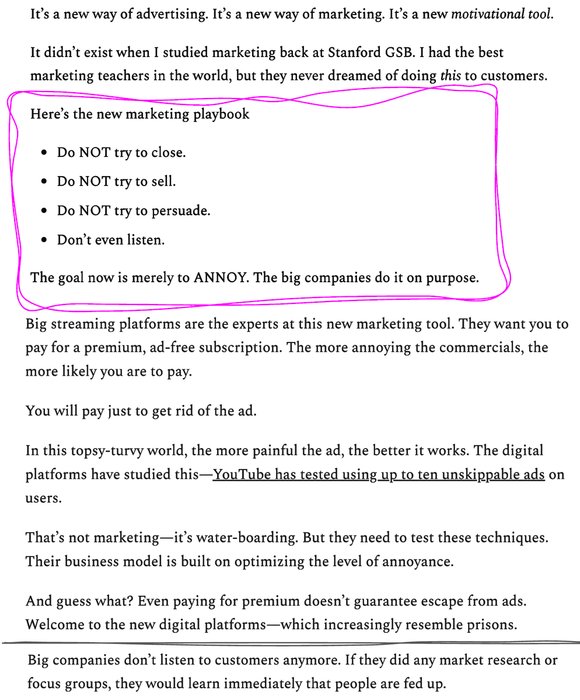Requires more thinking
The practice of nemawashi flushes out objections and agendas before the stakes for a new idea get too high. And it’s a process that allows an idea to be made stronger by diverse voices.
In other words, nemawashi describes the fine art of building consensus without selling; or the art of not being a hostage to fortune; or the art of not leaving thing
... See morebuttondown.email • Mixtaping My Metaphors
Validating Anger
- Validate children's anger; it's a healthy, normal emotion.
- Support and guide them in expressing it assertively, not aggressively.
Transcript:
Speaker 1
Now the last bit is kind of what we do with our behaviours. And that's really important that we think purposely about, you know, what are we doing as a response to that? Now, what do y
Pop Culture Parenting • Episode 091: The Matrix & Big Feelings
When you’re disappointed and unhappy and are feeling something very negative, how do you say it?
Julie Schwartz Gottman • Fight Right
As the brain can generate counter-arguments prolifically when directly challenged, it’s best to avoid this. Instead use subtler cues. That way the conscious mind doesn’t realise it’s being persuaded and confirmation bias isn’t activated.
The British Airways ads illustrate the pervasive power of subtle cues – ever since 1989 they have featured the Fl
Richard Shotton • The Choice Factory
And while we’ve been taught to think exclusively about the idea of the ‘proposition’, we’ve largely forgotten that we could often more usefully think in terms of the ‘story’. Propositions and stories are very different and we respond to them very differently. It’s easy to argue with a proposition; it’s impossible to argue with a story. Stories are
... See morePaul Feldwick • The Anatomy of Humbug
Our fascination with memory artists can also be explained by this tradition. There is nothing interesting about the capability of a normal person to remember thousands of words, countless facts, numerous subjects, the names of celebrities, friends, family members and colleagues over a long period of time. But when someone is able to remember a seri
... See moreSönke Ahrens • How to Take Smart Notes
Economics often evaluates people as playing ergodic games, while subjects are often making choices as if game is non-ergodic. Many “irrational” behaviors or “cognitive biases” are actually individuals realizing that a system is non-ergodic and not optimizing for expected value.
Taylor Pearson • A Big Little Idea Called Ergodicity

A podcast idea to explore?